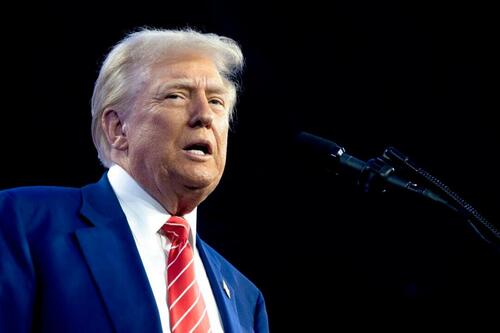Authored by Sam Dorman via The Epoch Times,
President-elect Donald Trump is asking the Supreme Court to block a law that could ban TikTok within the United States, stating that he would like to pursue negotiations to resolve some of the issues involved and salvage the platform.
The Supreme Court is expected to hear oral arguments over the law on Jan. 10, just nine days before the deadline for TikTok’s parent company to either divest from the platform in the United States or face an effective ban.
That Jan. 19 deadline is also just one day before Trump is expected to be inaugurated for his second term as president.
“President Trump alone possesses the consummate dealmaking expertise, the electoral mandate, and the political will to negotiate a resolution to save the platform while addressing the national security concerns,” his Dec. 27 amicus brief read.
Trump’s brief underscored the importance of the timing and urged the court to give him more of an opportunity to handle the issue as chief executive.
“This timing binds the hands of the incoming Administration on a significant issue of national security and foreign policy, and thus it raises significant questions under Article II,” the brief read.
Article II refers to the section of the constitution vesting executive authority with the president. Trump’s brief said the law raised questions about legislative encroachment on executive authority.
“The Executive, not Congress, is primarily charged with responsibility for the United States’ national security, its foreign policy, and its strategic relationship with its geopolitical rivals,” his brief read.
The law in question was passed with bipartisan support and signed by President Joe Biden earlier this year. TikTok challenged the law in federal court, and the U.S. Court of Appeals for the D.C. Circuit held that it satisfied a high level of scrutiny under the First Amendment.
Although the Supreme Court has decided to take up the First Amendment issue, Trump said he took no position on the merits of the underlying dispute.
He did, however, raise concern about the impact of the law on TikTok’s 170 million users and indicated that upholding it could create a “slippery slope toward global government censorship of social-media speech.”
Trump’s brief took issue with how the law directed the president to work through an interagency process “instead of exercising his sole discretion over the deliberative processes of the Executive Branch.”
In asking the Supreme Court to halt the law, TikTok similarly cited Trump’s incoming administration and the potential for his intervention.
On the day of TikTok’s application to the Supreme Court on Dec. 16, Trump gave a press conference in which he expressed sympathy for the platform.
“We’ll take a look at TikTok,” he said, noting that he had a “warm spot” in his heart for the platform. He added that TikTok had an effect on the support he received from young people in the election.
TikTok had asked the D.C. Circuit to halt the law but was rejected.
“The petitioners have not identified any case in which a court, after rejecting a constitutional challenge to an Act of Congress, has enjoined the Act from going into effect while review is sought in the Supreme Court,” a December 13 order from the court reads.
Attorney General Merrick Garland, whom TikTok sued in the D.C. Circuit and is the respondent at the Supreme Court, defended the law. In a Dec. 27 filing, the Department of Justice said the law “addresses the serious threats to national security posed by the Chinese government’s control of TikTok, a platform that harvests sensitive data about tens of millions of Americans and would be a potent tool for covert influence operations by a foreign adversary.”
The case drew many amicus briefs from organizations, including the Cato Institute and the American Civil Liberties Union. Both of those supported TikTok. A group of former national security officials backed the D.C. Circuit’s decision.
